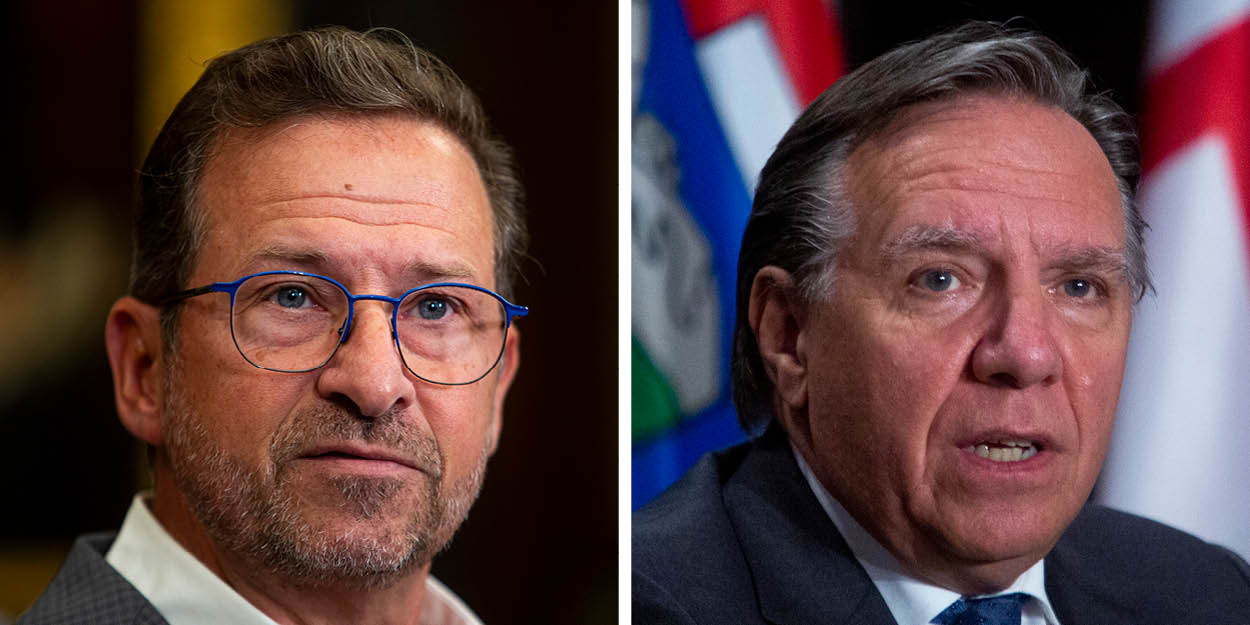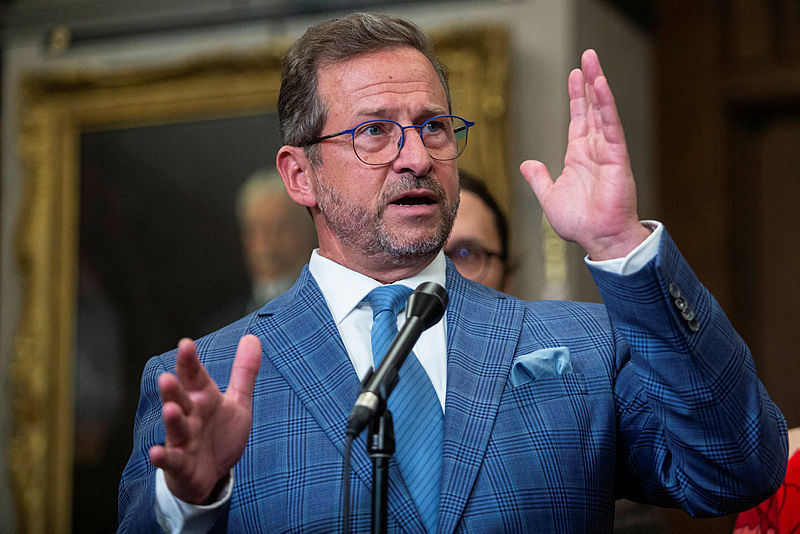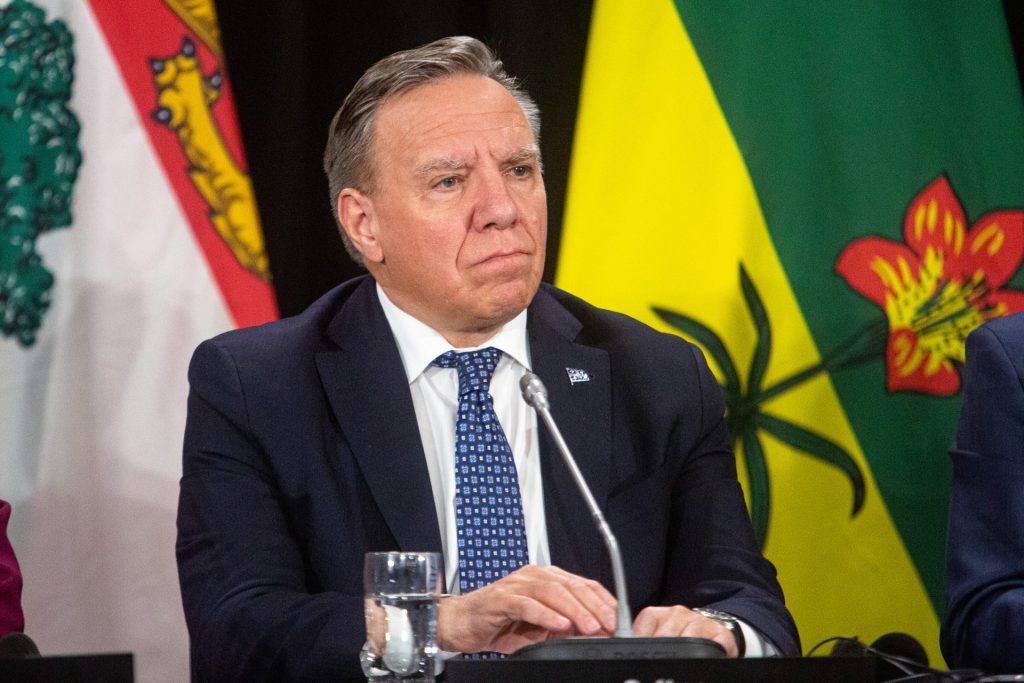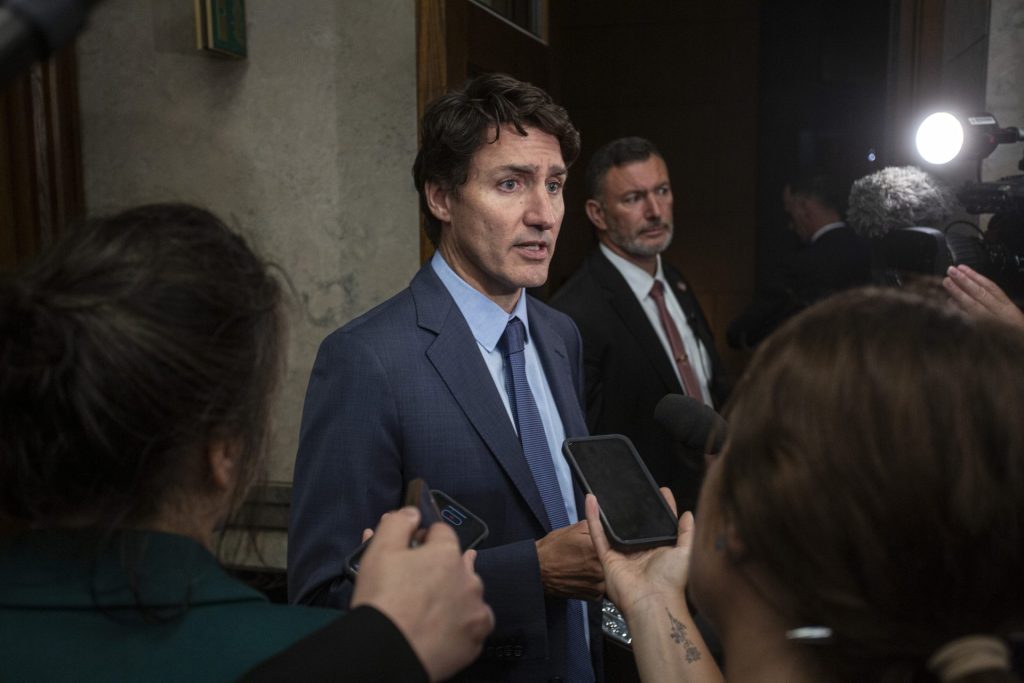‘A lot of tension’ in both Ottawa and Quebec City sparks shifting alliances between parties

As Bloc Québécois Leader Yves-François Blanchet amps up his pressure on the Liberal government, how his party leverages its newly influential position in Parliament will likely spur more interplay between federal and provincial counterparts in the coming months, say observers.
“There’s a lot of tension in both Quebec City and Ottawa,” said former NDP staffer Karl Bélanger. “There are so many players with so many different interests at play.”
“The most immediate impact is the kind of alliances or partnerships that are being formed between the provincial parties and the federal parties,” he said.

The Bloc Québécois, led by Blanchet (Beloeil—Chambly, Que.), has taken on a newly influential role in the House of Commons since NDP Leader Jagmeet Singh (Burnaby South, B.C.) ended his party’s supply-and-confidence agreement with the Liberals on the eve of the fall sitting. The current seat count in the House requires all recognized opposition parties—the Conservatives, Bloc, and NDP—to vote against the Liberal government in order to defeat it, meaning the support of even one opposition party is enough the keep the government in power on any vote.
On Sept. 18, Blanchet pledged he would support the Liberals on the first confidence vote of the sitting without any specific policy concessions. But on Sept. 25, the same day the Bloc—along with the NDP—voted to keep Prime Minister Justin Trudeau’s (Papineau, Que.) government in office, Blanchet made it clear his support will be conditional going forward, and set a firm deadline for his demands.
Blanchet said he wants the Liberals to ensure two Bloc private members’ bills—one on pensions, and another on supply management—are passed by Oct. 29, or he will move to bring down the government. The bill related to pensions would cost Ottawa more than $3-billion in its first year, and more than $16-billion over five years, according to analysis by the Parliamentary Budget Office. Conservative Leader Pierre Poilievre (Carleton, Ont.) has strongly criticized the Bloc for its new willingness to keep the Liberals in power.
Meanwhile, the sparring in Ottawa drifted into the Quebec provincial scene, where Quebec Premier François Legault waded into the fray. Legault’s nationalist CAQ government has been trailing in public opinion for months, while the separatist Parti Québécois (PQ)—which promises to hold another referendum if returned to power—is leading in the polls.

Legault dismissed the Bloc’s decision to support the Liberals by describing the PQ as the Bloc’s “sister party.” He called not on Blanchet, but on PQ Leader Paul St-Pierre Plamondon to pressure the Bloc to bring down the Liberal government, which Legault has been at odds with over immigration policy.

Former Liberal staffer Jeremy Ghio, who’s now a director with the government relations firm TACT, described Legault’s intervention as “a bit of a desperate move.”
“His logic was ‘the friend of my enemy is my enemy,’” said Ghio. “So we’re seeing kind of a clumsy manoeuvre to put pressure on the Parti Québécois that finally ended up boomeranging in its own face.”
On Sept 25. Legault attempted to reframe his comments as he came under fire in the Quebec legislature, saying “I never said I support one party over another.”
“What I asked is why does the Bloc not take advantage of the confidence vote to demand the Trudeau government finally significantly reduce the number of immigrants,” said Legault.
Ghio said Legault could have chosen to “take advantage” of the present circumstances by saying, “‘Let’s try to get as much as we can from the federal government right now and benefit from its situation of weakness’ … rather than antagonizing the federal government and creating a conflict.”
He said there is “no way” the Liberal government will now be keen to deliver Legault any wins, but Blanchet remains in a good position to negotiate.
He said the Liberals have a strong motivation to find common ground with the Bloc because “everything they give to the Bloc Québécois, you could also argue that you’re giving Quebec.”
“There’s no path to a government for the Liberals without Quebec,” said Ghio.
Legault has ‘rubbed’ Blanchet ‘the wrong way’
Bélanger, who is now president of Traxxion Strategies, said Blanchet is using a “simple” strategy with “clear” demands.

“They’re very straightforward, there’s only two, and there’s a clear deadline,” he said.
However, there’s still some risk for Blanchet even though pensions and supply management are popular issues that “play well” in Quebec, said Bélanger.
“I’m not sure that it’s going to resonate as much as what is the current point of conflict between Quebec and Ottawa,” which is immigration, he said.
Bélanger added that because Legault had pressured Blanchet to focus on immigration, it’s now far less likely the Bloc leader will prioritize that issue.
“The way Legault went at it clearly has rubbed Yves-François Blanchet the wrong way, and I do not see Blanchet going back to that file as a core demand for Trudeau’s survival in the House anytime soon,” said Bélanger. “He’s a very stubborn guy.”
Bélanger questioned how well this approach would serve Legault when it comes to netting a policy win.
It might have been more productive to work with the Bloc “behind the scenes to come up with an agenda that would satisfy the Quebec government,” he said.

But on the political side, it’s possible Legault might get some benefits, even if his claims are far-reaching, said Bélanger.
“In this bizarre twist of logic, [Legault is] trying to associate Paul St-Pierre Plamondon and the Parti Québécois with the survival of Justin Trudeau’s Liberals, which is a bit of a stretch,” said Bélanger. “But the thing that’s working out in [Legault’s] favour is that he is fighting really hard against the immigration policy of the federal government, and the CAQ strategists are hoping that this will rise above the noise.”

Former Conservative staffer Philippe Bolduc said going after Trudeau—”the most unpopular politician in country”—can only help Legault, and the Bloc is running a risk by supporting the government.
“The Bloc needs to be careful in becoming the automatic defender of the Liberals,” said Bolduc, who is now a director at Wellington Advocacy. “That could really hurt them, and then it could also hurt the PQ, because there is an obvious link there.”
Even if the Bloc extracts some policy wins, it may not serve them because the Liberals will take credit, said Bolduc. He noted the NDP’s troubles claiming credit for supply-and-confidence agreement policies.
He added Poilievre has the capacity to do a “great job getting under Blanchet’s skin.”
“Pierre is a master communicator,” said Bolduc. “They’re going to be, I think, very successful in tying the Bloc to the Liberals, just like they did the NDP.”

He said Legault’s CAQ may also outmanoeuvre the Bloc.
“Legault is actually doing a pretty good job of saying, ‘this is what we want … [on] immigration control,’” said Bolduc. “The Bloc isn’t able to deliver that for Quebec, so their strategy is going to be kneecapped by the premier.”
If Conservatives win the next federal election, that could help Legault deliver his priorities, Bolduc added.
“He’ll have a much friendlier government who is much more respectful of provincial jurisdiction, I would say, and who isn’t interested in running each province.”
Sovereignty ‘game plan’ back in play
However, if the next federal election were to return a larger contingent of Bloc MPs, that’s also a win for separatist forces, and would increase the likelihood of a PQ government and an eventual referendum, said Bélanger.
“We’re basically back to the three-period strategy … of the sovereigntists during the [Lucien] Bouchard-[Jacques] Parizeau era [in the 1990s], which is win big in Ottawa with the Bloc, form government with the PQ in Quebec, and then win a referendum,” said Bélanger. “That game plan is now back into relevancy.”
Ghio said the PQ’s lead in the polls means that Quebec’s relationship with the rest of Canada is once again “a question of the present time.”
“We’re going to see more and more debate about national unity because the reality is that the leading party in Quebec—provincially speaking—is for Quebec’s independence,” said Ghio.
icampbell@hilltimes.com
The Hill Times






 LICENSING
LICENSING PODCAST
PODCAST ALERTS
ALERTS













